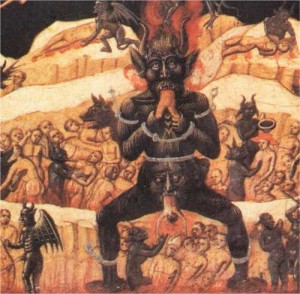 Deciding quite where and how a nation should draw the line between its citizens’ right to practice their religions and its own right to protect itself from spiraling down into balkanization has never been an easy thing to determine and in an age of multiculturalism it is becoming more difficult still.
Deciding quite where and how a nation should draw the line between its citizens’ right to practice their religions and its own right to protect itself from spiraling down into balkanization has never been an easy thing to determine and in an age of multiculturalism it is becoming more difficult still.
Over then to the UK: writing in the Daily Telegraph, Matthew d’Ancona laments guidance given by Universities UK on the arrangements to be put in place when external speakers are visiting a campus and, specifically, this:
“[a wish to] accommodate the wishes or beliefs of those opposed to [gender] segregation should not result in a religious group being prevented from having a debate in accordance with its belief system. Ultimately, if imposing an unsegregated seating area in addition to the segregated areas contravenes the genuinely held religious beliefs of the group hosting the event, or those of the speaker, the institution should be mindful to ensure that the freedom of speech of the religious group or speaker is not curtailed unlawfully.”
D’Ancona’s response:
[T]his is a test case about much more than fringe events on provincial campuses. It is about the very basis of a pluralist society and what philosophers call “value incommensurability” – the clash between principles, and the dilemmas that such conflicts pose. As a ferocious opponent of theocratic creep, Hitchens argued that secular society was becoming far too emollient and unwilling to defend Enlightenment values against attack. Diplomatic immunity, equality before the law, the right of the novelist to free expression: all are now weighed against the risk of upsetting the theological apple cart.
The segregation row has forced us to confront the friction between religious sensitivities and core aspects of our common citizenship. The heart of the matter is the word “freedom” and its abuse. The original guidance claimed that forbidding segregation by gender on campus might infringe “the freedom of speech of the religious group or speaker”. This is babble, but it is dangerous babble. It implies that upsetting the religious sensibilities of an individual or congregation – and it is possible to take offence at anything – is a form of censorship.
I heard a similar argument made during the gay marriage debate: that same-sex weddings would somehow infringe “religious freedoms”, even though they were to be held exclusively in civil settings. In the segregation row, the hurt feelings of a believer or group of believers are weighed against the entire principle of gender equality – as if core principles are upheld only on the probationary basis that they do not upset the faithful. This amazing proposition reverses the polarities of the 20th century and replaces the totalitarian state with the totalitarian individual – the person who claims that absolutely anything that offends him is an assault on his “religious freedom” and has to be stopped. And let us be frank: because, collectively, we have grown fearful of religious extremism, we, too, often nod respectfully when we should be fighting back.
Well, yes.
And right on cue, there’s this, also from the Daily Telegraph:
At M&S [a British retailer], Muslim staff who do not wish to handle alcohol or pork have been told they can politely request that customers choose another till at which to pay.
At one of its stores in central London last week, customers waiting with goods that included pork or alcohol were told by a Muslim checkout worker to wait until another till became available. The assistant was extremely apologetic at having to ask customers to wait.
One customer, who declined to be named, said: “I had one bottle of champagne, and the lady, who was wearing a headscarf, was very apologetic but said she could not serve me. She told me to wait until another member of staff was available.
“I was taken aback. I was a bit surprised. I’ve never come across that before.
Well, get used to it. Best guess is that there will be more of this nonsense to come.
Writing in the same newspaper, Damian Thompson hits back:
I’m sorry, but if you cannot “handle” bacon and champagne and dozens of other products – even though your co-religionists have been doing so for decades – then don’t work in a secular supermarket. And I’d say the same to a Christian from a teetotal sect who refused to process the sale of alcohol.
When Islam and political correctness join forces, as they do so often, questioning their demands is portrayed as racist. Actually, if you really want to damage relations between communities, then ordering harassed shoppers to change queues (which are long enough already in M&S, God knows) is a good way to go about it.
Another chain, Sainsbury’s, has said that it has no plans to follow M&S’s lemming lead.
Thompson applauds:
Good for Sainsbury’s. Accommodating employees’ religious beliefs and customers’ requirements can be tricky; but there are times when common sense tells you that a particular demand is over the top and counterproductive. Give in to it, and not only will unfounded accusations of racism fly around, but genuine racists will jump in to sour relations between shoppers and (typically) young female Muslim checkout staff, some of whom may already be under pressure from the religious police in their own community.
Note that in our report the Muslim lady says apologetically that she “could not” serve the customer buying champagne. Is that because it offends her conscience – or because she’s been told that, as a Muslim, she is no longer allowed to do this part of her job?
That last point is important. By doing what it has done, M&S has lent a helping hand to the fundamentalist enforcers.
I won’t be shopping there next time I’m in Blighty.
Update
The Jewish Chronicle reports:
Marks & Spencer has confirmed that Jewish employees do not have to serve pork products at tills to its customers, if it goes against their religious beliefs. The chain confirmed that, in the same way a Muslim member of staff could refuse to handle pork and alcohol, a Jewish employee could decline to sell pork sausages, bacon rashers and sea-food.
A M&S spokesperson said: “We recognise that some if our employees practise religions that restrict food or drink they can handle, or mean they cannot work at certain times.
“M&S promotes an environment free from discrimination and so, where specific requests are made, we always make reasonable adjustments to accommodate them, whilst ensuring high levels of customer service.”
As I said, balkanization.
And what about,, say, secular vegetarians compelled to sell the remnants of slaughtered livestock? Do their feelings count for nothing? Or does M&S only respect deeply-held religious belief.
Discrimination!
 What to today’s Satanists believe?
What to today’s Satanists believe?







